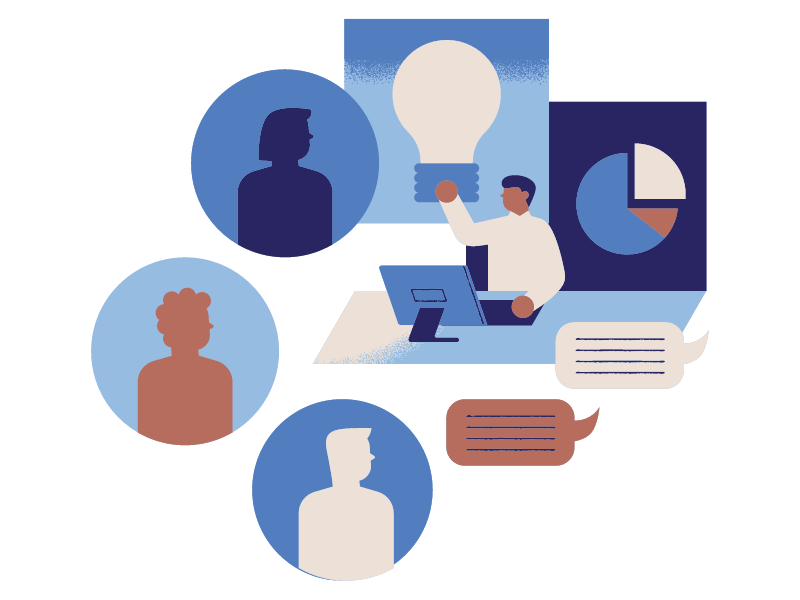Common CRM Myths
Myth #1: CRM is only for large enterprises.
Many people assume that CRM software is too complex and expensive for small to medium-sized businesses. However, CRM software comes in different sizes, and there are various options available that can be tailored to meet the specific needs and budgets of businesses of all sizes.
Debunking: In reality, CRM is essential for businesses of all sizes. CRM software can help small businesses automate their sales and marketing processes, improve customer relationships, and enhance customer experiences. Additionally, cloud-based CRM solutions are available that can provide an affordable and flexible solution for businesses on a budget.
Myth #2: CRM is just a glorified contact list.
Some people believe that CRM software is nothing more than a database of customer information, and therefore, it doesn't provide any real value to businesses.
Debunking: This is a common misconception about CRM. It helps businesses track and analyze customer interactions, identify sales opportunities, automate sales and marketing processes, and ultimately, improve customer experiences. CRM software provides businesses with valuable insights that can help them make informed decisions about their customers and grow their businesses.
Myth #3: CRM is too complicated to use.
Some people believe that CRM software is too complex and difficult to use, which can lead to low user adoption rates and poor ROI.
Debunking: While some CRM software can be complex, many modern CRM solutions are user-friendly and easy to use. Additionally, many CRM vendors offer training and support to help businesses get started and make the most out of their CRM investment.
Myth #4: CRM is only for salespeople.
Some people believe that CRM software is only useful for salespeople, and other departments in the organization, such as marketing or customer support, don't need to use it.
Debunking: CRM software can be useful for all departments in an organization, not just sales. For instance, marketing teams can use it to track and analyze customer behavior and preferences to create targeted marketing campaigns. Customer support teams can use CRM software to access customer information quickly and provide personalized support. By sharing customer information across departments, businesses can improve collaboration and deliver a better customer experience.
Myth #5: CRM is a one-time investment.
Some people assume that once they've invested in a CRM solution, their work is done, and they don't need to worry about it anymore.
Debunking: CRM is not a one-time investment. It requires ongoing maintenance and updates to ensure it's providing the desired results. Additionally, businesses need to continue training employees on how to use the CRM software effectively and adjust their strategies based on the insights provided by the CRM system. By continuously optimizing and improving their CRM strategy, businesses can maximize the benefits of their CRM investment.
.png)


.png)


